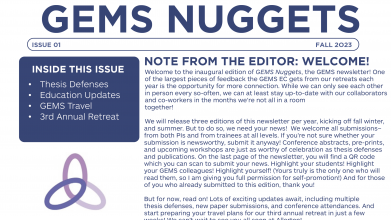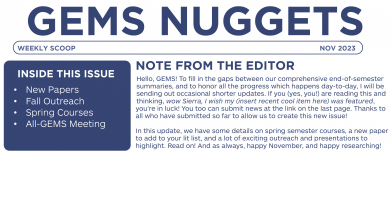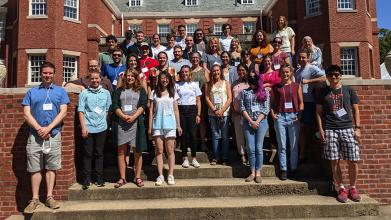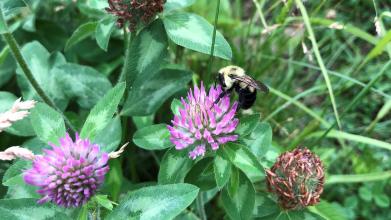News
News
Soil microbes help plants cope with drought

Work from GEMS member and professor of Natural Resources & Environmental Sciences Anthony Yannarell featured on the NSF website.
Events
Third Annual GEMS Retreat
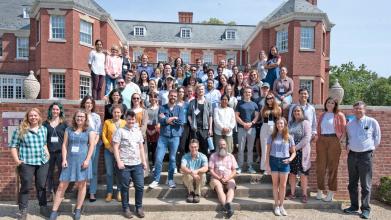
The third annual GEMS retreat was held at Allerton Park & Retreat Center in Illinois on September 18 – 19, 2023. As our institute has grown, so has our retreat attendance, with over 60 faculty and trainees coming together to share research progress and connect with fellow GEMS members. The retreat opened with a poster session followed by a full day of research talks and group discussions.
Second Annual GEMS Retreat
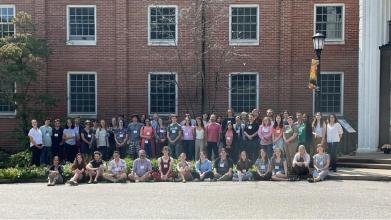
McCormick’s Creek State Park in Indiana was the location for the second annual GEMS retreat held on September 15 – 16, 2022. Over 50 participants, including faculty, students, and postdocs from all the partner institutions, including newly added New York University as well as our external evaluators from UNC Greensboro, gathered to hear research updates and network with fellow institute members.
Research Highlights
Project Highlight: Recombination, HGT, and natural selection in bacterial evolutionary responses

More than three billion years ago, the tree of life sprouted. As life diversified, the branches of the tree spread, each fork a common ancestor, each proceeding branch a diverging lineage, and every terminating leaf an extant species. The tree has flourished (despite several harsh prunings) for eons hence.
Project Highlight: Understanding the nexus of nutrition, the microbiome, and virus susceptibility in the honey bee
One of the most charismatic faces of the climate crisis and our changing world is the humble honey bee. According to the USDA, honey bees are responsible for every one in three bites of food we eat, and without them, it has been estimated that yields on more than 30% of agricultural land worldwide would decrease.
zacaption area


